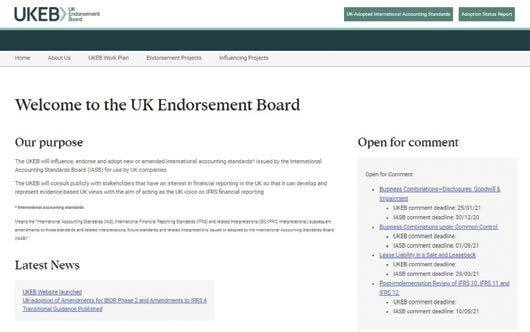FINANCIAL ACCOUNTING
A new normal 2021 will usher in an era of change for financial accountants. Scott Dietz discusses areas open to significant exposure. Scott Dietz Director, Regulatory and Accounting Solutions, Moody’s Analytics
W
hat is the outlook for the coming year? Not since the 2008 financial crisis has the answer to this question been so unknown. Any discussion around 2021 must start with how the pandemic will continue to affect – and change – how companies operate.
Covid-19 fallout
For some nations, the return to pre-pandemic economic levels may not occur until the middle of the next decade. 16
The impact of the coronavirus on economies will be felt for years to come. Economic forecasts from Moody’s Analytics, published in 2020, noted that for some nations the return to pre-pandemic economic levels may not occur until the middle of this decade. These impacts will be felt in accounting as 2021 progresses. While many businesses have so far been able to withstand the financial challenges, helped by fiscal policy measures and government stimulus, the expectation is that the severity of business and consumer losses will come more sharply into focus. This will generate many questions for those in the accounting space around what level of allowances and reserves should be maintained on existing and new loans, as well as investments. That the recovery is now being projected to last for such a long time will only compound the challenges placed upon accountants to justify their allowance estimates. As an example, for those in the banking and insurance industries there are new questions about what effect the pandemic will have on commercial real estate investments. Both industries have been heavily invested in the commercial real estate market, particularly in urban areas across the globe, as it has been considered a steady and sound investment. However, some expect the commercial real estate market to be the most affected over the long term by the pandemic, including immediate impacts to the values of office, retail, and hotel spaces. Over the next year, as losses emerge, that long-term picture will begin to get clearer. Decision makers in these industries will need to consider all of their future investment options, including whether to stay in the commercial real estate market.
Any time such changes are considered, it leads to uncertainty and questions from investors which financial accountants will need to address. As collateral values decrease significantly, what will that do to asset values and possible impairments? In the insurance industry, these investments are often tied directly to liability matching. What effect will this have on other asset liability management programmes?
Financial reporting and ESG concerns
Environmental, social and governance (ESG) considerations are expected to really begin driving change in accounting and financial reporting in 2021. When we look at social factors, such as how a company is working to better its community, investors are asking for disclosures about these plans – as well as updates on how the company is progressing in its ESG efforts. At the Financial Accounting Standards Board’s (FASB) November Investor Advisory Committee ISSUE 115 | AIAWORLDWIDE.COM










